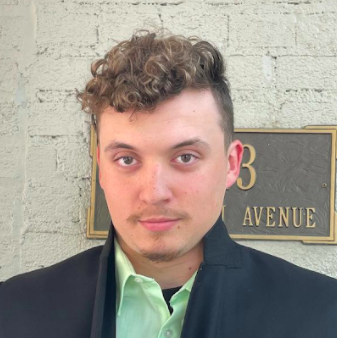Student Essay:
The Way of Good Enough

By Lewis Joseph Thornberry
What if the either-or pursuit of "mastery or nothing" is not making us any happier?
Diminishing returns are an immutable law of human life. The logic of our realm dictates that the more adept one of us becomes in a certain facet of existence, the more difficult it becomes to improve further. It is an unavoidable fact that as we approach the metaphorical lightspeed of perfection, moving closer will take more and more energy until further progress becomes impossible. No human will ever do anything optimally.
This realization can bring despair, but it can also bring hope. There is pain in the knowledge that the next four years of practice will yield less improvement than the previous two, but there is also opportunity. If in two years I have reaped the majority of the rewards that practicing a certain skill offers, what else can I learn in two years? For it seems to me that, while it may take ten thousand hours to master an art, it takes only five hundred to become good enough at it.
Think about it. How much practice does it take to master the guitar? Decades. But how much does it take to start a band with your friends? A summer. How long does it take to become a nationally-ranked chef? Years. But how long to know how to cook for your family? A month. Can you see? Acceptable proficiency in nearly any skill imaginable is within our reach. All we need to spend is a pittance of our time.
Half the fruit of the tree of mastery hangs just feet above our heads, and one does not need to climb to the very top to taste it. So choose a skill you think will benefit you, and practice it until it clicks, and you have gained the majority of its benefits. When you notice others beginning to be impressed by your ability, a choice awaits you: continue to develop this skill, accepting that future improvement will be more difficult than past, or simply declare your ability “good enough” and move on. Neither choice is wrong. As the years move on, we can become wiser and wiser in the ways of the world, our lives growing more and more fulfilling as we learn of new ways to look at them.
And now I was going to bring back all such things into my life and become again that most limited of all specialists, the "well-rounded man."
F. Scott Fitzgerald, The Great Gatsby
Given the ease of learning this way, is it not strange that we are so surrounded by those who are only proficient in one aspect of existence? Why must every new college graduate be either a mathematician who cannot spell or a poet who cannot add? Men choose one skill that will provide their livelihood, and fear to practice any other, lest by learning a new art they waste valuable time they could spend furthering their vocation. This fixation on a single skill is detrimental to our people, and robs much meaning from our lives.
But there is a better way. This fear is based on the flawed belief that skill progression is linear, and thus men must dedicate all of their time to be competitive in their chosen art. It is not a valid fear. If we accept that we need not be the best in all we do, we may attain competence in many aspects of life with a fraction of the time it would take to attain perfection in just one. Achieve a high level in the skill that provides your livelihood, by all means, but past a certain point, your time is better spent learning something new.
It doesn’t take much effort. Our lives are filled with slight inefficiencies, moments where the mind is occupied but the hands are not, or the other way around. All we have to do is fill those gaps with the practice of a new skill. Commercial break? Lay down a set of pushups. Downtime at work? Drums are unique among the instruments in that you can practice with nothing but your hands and feet. Sing while you dress. Memorize while you run. Eat well enough. Fight well enough. The time is there. Use it.
This, then, is the Way of Good Enough. By exploiting the law of diminishing returns, the power is given to us to, in effect, cheat the fabric of existence into giving us more skill than our short lives would normally provide the opportunity to acquire. What will you learn next?
__________________________________________________________________________________